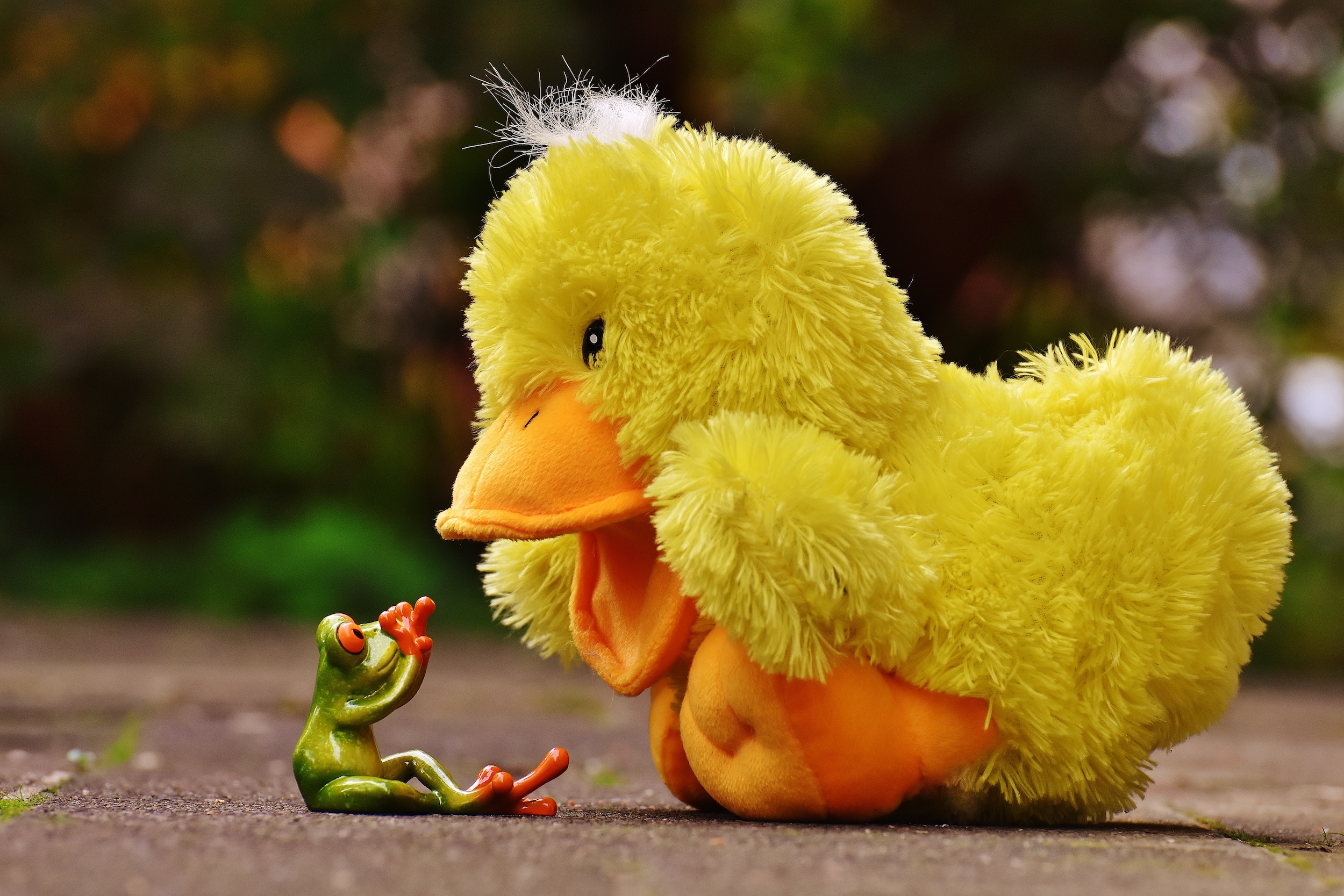When summertime comes around, your ducks love cooling off in their pond. But they’re likely not the only creatures in there—as you walk along the water’s edge, you can likely hear croaking and watch frogs jumping into the pond.
You’ve likely seen your ducks gobble up a complex array of foods around their pen. So, it might get you wondering—do ducks eat frogs?
The quick answer is yes, ducks eat frogs. However, the situation is more complex than that, so read on to become a duck and frog expert.
Your Omnivorous Ducks
If you haven’t owned your ducks for long, it’s easy to assume that they’re herbivores. However, ducks actually enjoy a diet of greens, insects, and, in some cases, non-vegetable proteins like frogs.
In fact, frogs aren’t the only live protein that ducks eat. As they peruse around your lawn and pond, they’ll also gobble up:
- Snails
- Worms
- Small fish
- Slugs
Although ducks will eat essentially any aquatic or land insect and amphibian they encounter, there’s an important factor that these creatures must have for frogs to eat them: A small size.
Therefore, it’s unlikely you’ll find one of your ducks tackling a bullfrog the size of a small dinner plate in your backyard.
Furthermore, when it comes to frogs, they aren’t a duck’s typical go-to meal. In fact, if you catch your duck eating a frog, it could be because you’re not feeding them enough. That said, there’s an exception to this rule.
The Relationship Between Mallard Ducks, Nesting Season, and Frogs
Have you ever wondered: Do Mallard ducks eat frogs?
Your Mallard duck might have gotten you thinking about this if it looked like it was hunting frogs along your pond’s edge.
It just so happens that of the different duck species, Mallards have a higher tendency to eat frogs than other duck breeds. Most often, they eat frogs during their nesting season. That’s because Mallards require a higher protein concentration to raise their young than other times of the year.
When it comes to which gender does the frog hunting, the answer might surprise you: Females are usually the ones who capture frogs.
However, if a male Mallard is nearby, don’t be surprised if you watch him try to steal the female’s frog!
Do Ducks Eat Frog Eggs?
You’re likely already familiar with a frog’s life cycle from your middle school science class, but in case you need a refresher, frogs start by laying eggs, tadpoles hatch from those eggs, and then the tadpoles undergo metamorphosis to become frogs.
Given the information we’ve shared up to now, you may have already guessed the answer to this question—ducks will eat frog spawn, or eggs, if they’re hungry and encounter them.
In fact, when given a choice between frog eggs and the frog itself, your ducks will likely choose the eggs.
Why’s that, you wonder?
Well, even the smallest frogs are a mouthful for ducks to eat, and they could even cause them to choke. Therefore, frog eggs are a far easier protein-packed meal for them to swallow.
Furthermore, the eggs don’t move around, making it infinitely easier for ducks to catch them than frogs.
The amount of protein your duck extracts from the frog spawn depends on when your ducks eat them; each egg contains a growing tadpole.
So, the larger the tadpole before it hatches, the more nutritious the frogspawn is for your duck.
Do Ducks Eat Tadpoles?
Just like frog eggs are easier for your ducks to get their mouths around, so are tadpoles. Furthermore, tadpoles are more manageable for your duck to eat than a frog since tadpoles congregate on the water’s surface and often stick to shallower areas.
In the wild, tadpoles are a staple food for ducks when there’s a scarcity of food. However, since your ducks are in captivity, it’s unlikely they’ll end up eating frogs during any stage of their life cycle.
Do Ducks Eat Toads?
Unlike frogs, toads are more land-dwelling amphibians, and they tend to become more active in the evening. Therefore, toads may enter your ducks’ coop, which could have you concerned about whether your ducks will try to eat them.
Although toads produce bufotoxin, which is a poisonous secretion if an animal tries to pick them up, according to research performed at the University of New Mexico, ducks can eat toads without regurgitation or irritation.
Nevertheless, we think it’s safe to assume that most ducks prefer frogs over toads, and they prefer the food you give them over either of these amphibians.
A Duck’s Preferred Meal
Although ducks can eat frogs and toads, if other tastier and easier options to graze on are available, they’ll gravitate towards them. These foods include:
- Algae
- Fruit
- Nuts
- Grass
- Seeds
- Insects
- Fish eggs
In other words, these omnivores prefer a mostly herbivore diet when given a chance.
That said, the breed of duck makes a difference in what its preferred food is. For example, Muscovy ducks love eating insects. In fact, their name descends from the word “mosquito” in South America.
On the other hand, Mallard ducks are a more aggressive species. They’ll eat frogs at all stages of their life cycle and may even attack small birds if there aren’t any other food options around.
Nevertheless, such behaviors are dangerous for ducks since it increases their likelihood of choking.
Since you want to keep your ducks happy and stress-free, it’s important to feed them a diet that balances the nutrition they need; choosing a feed made for ducks is an excellent option.
Wrap Up
Your ducks might not be as innocent as they seem when they paddle around your pond. Depending on the type of duck you own, you might witness them eat a frog. However, provided that you’re giving them a rich and varied diet, more often than not, your ducks will peacefully share their swim space with frogs.

